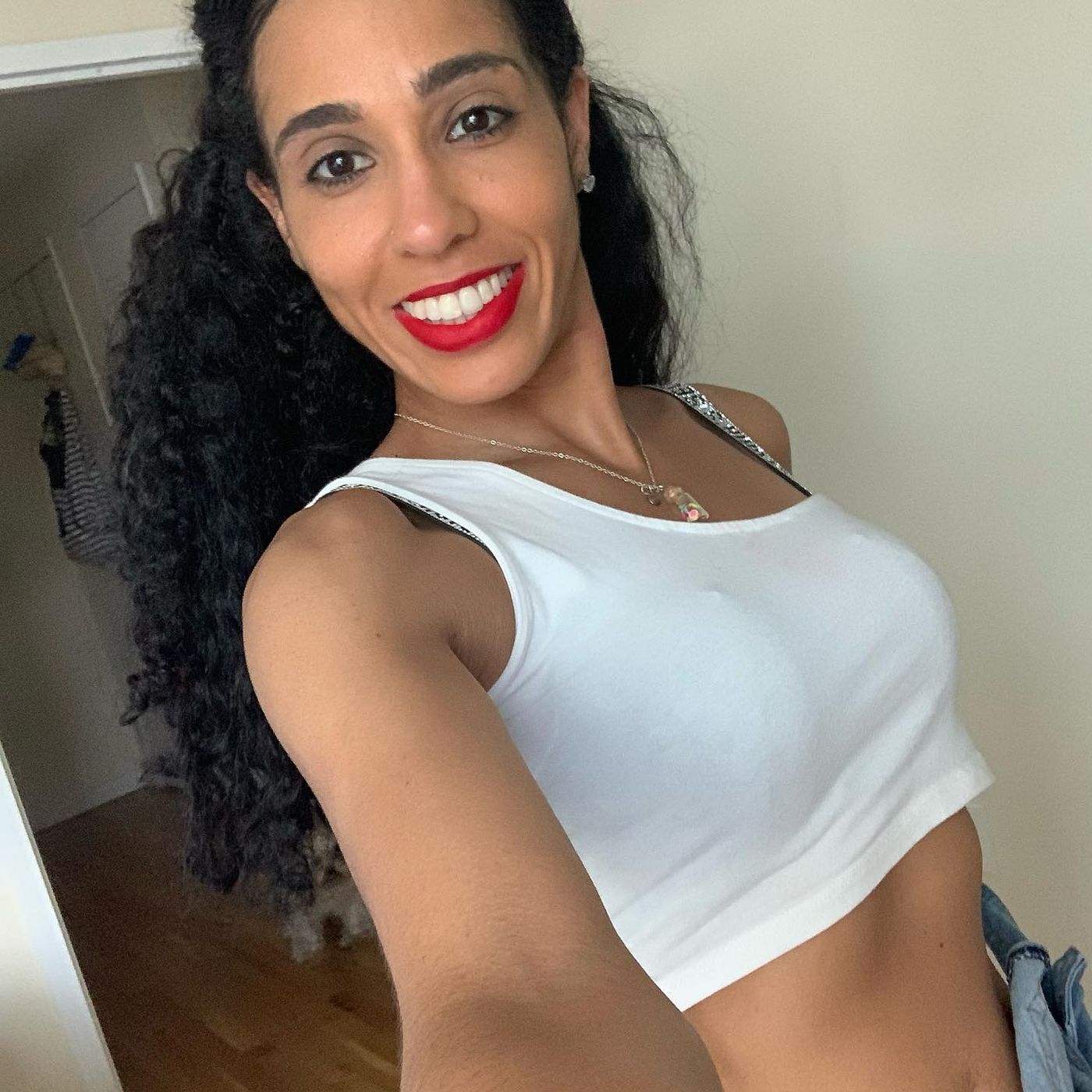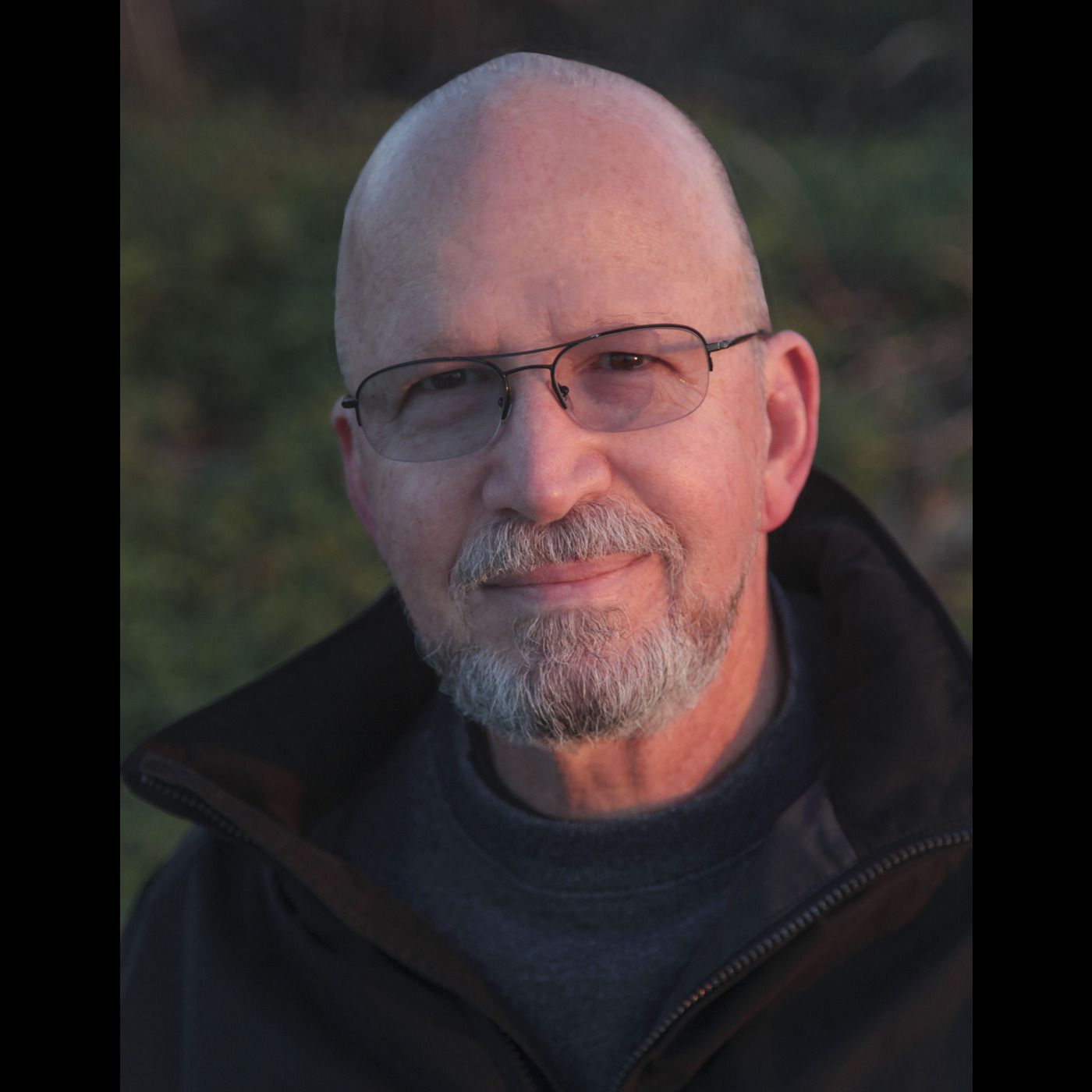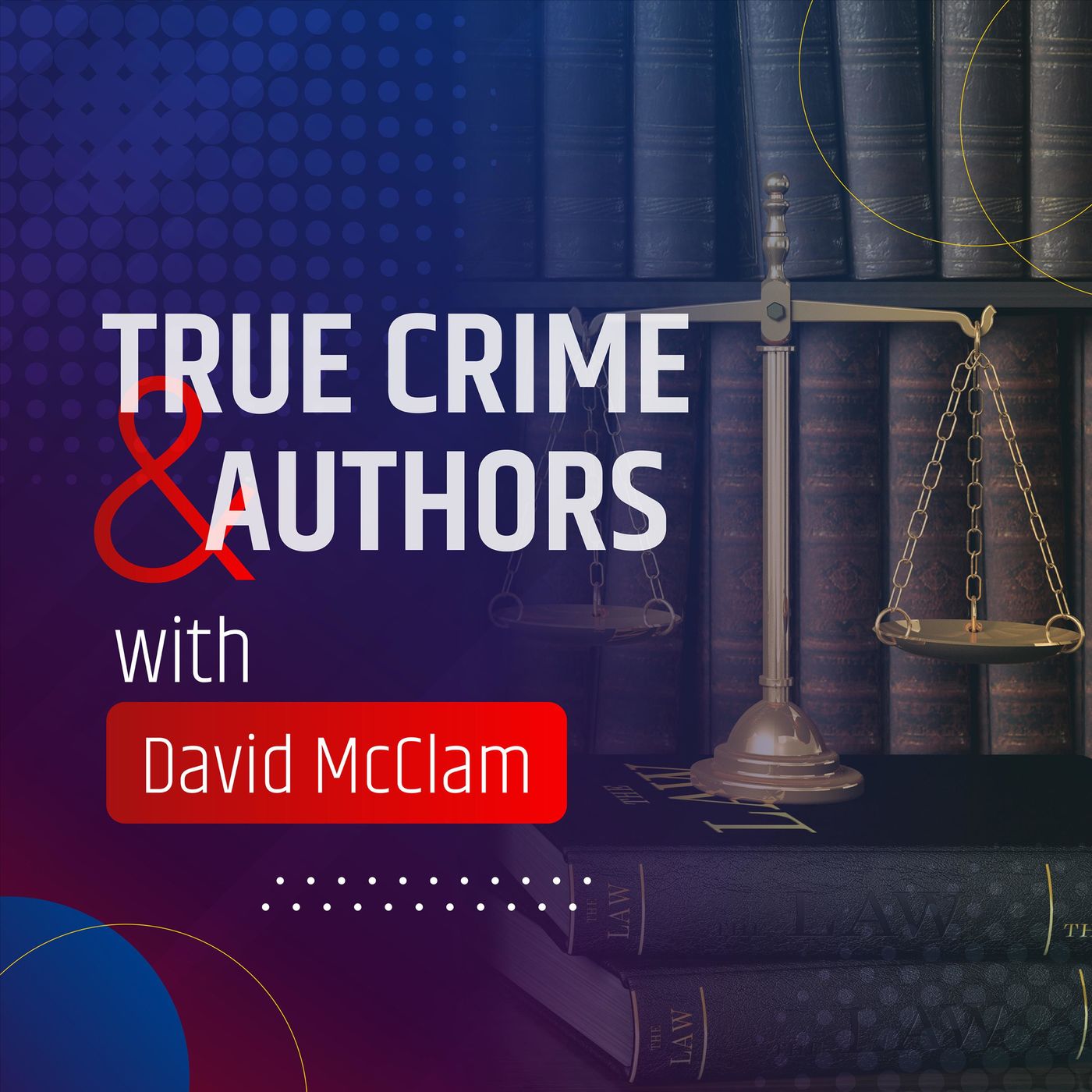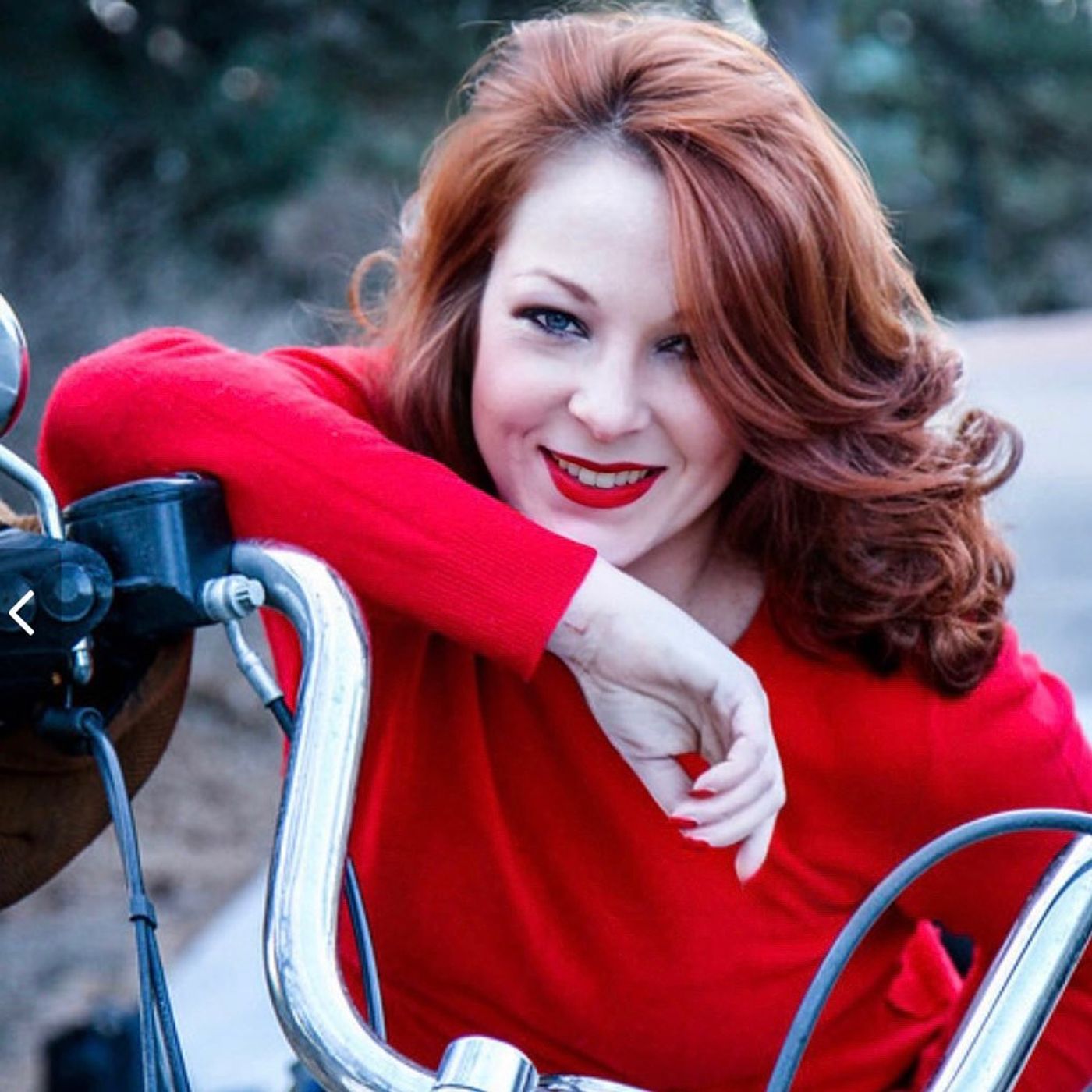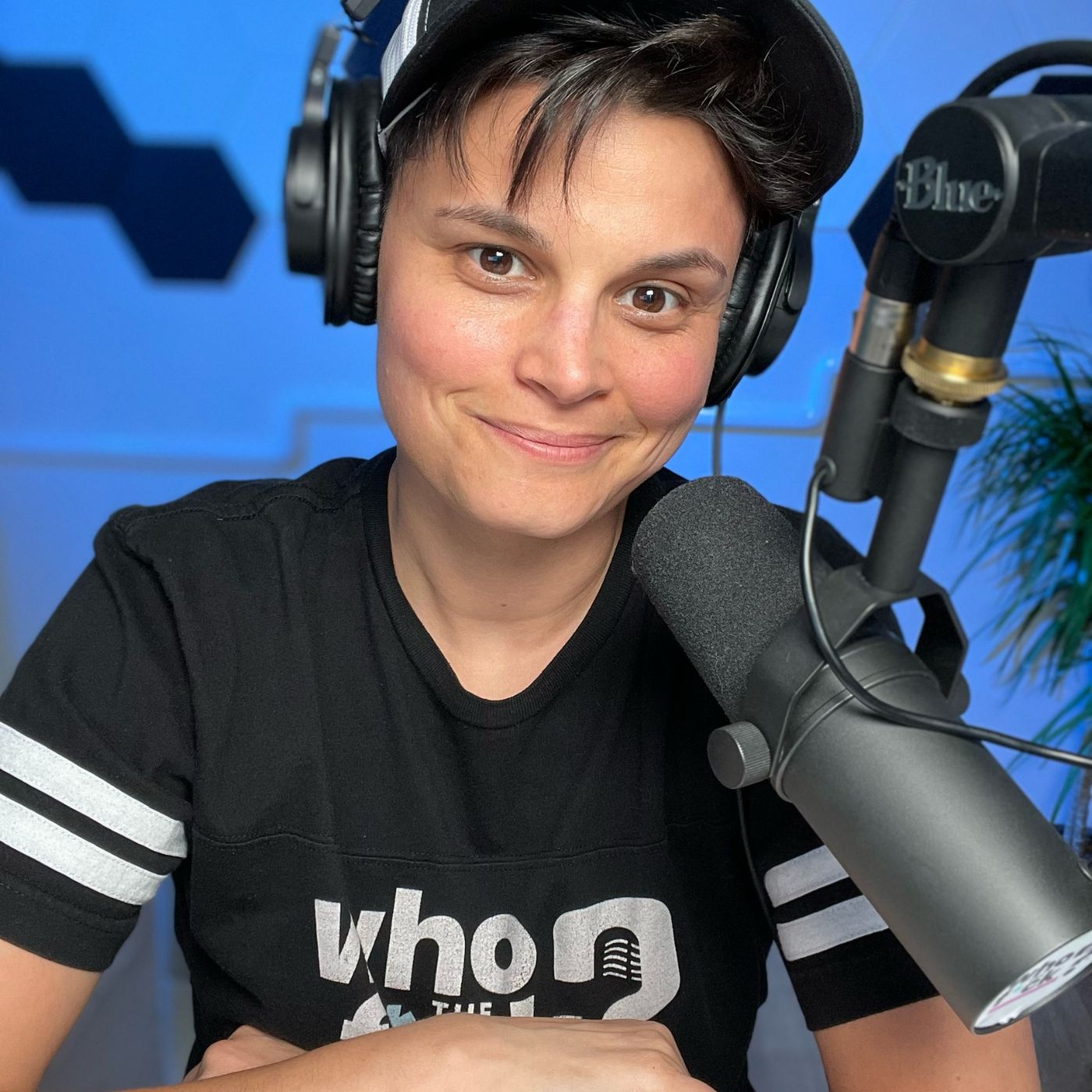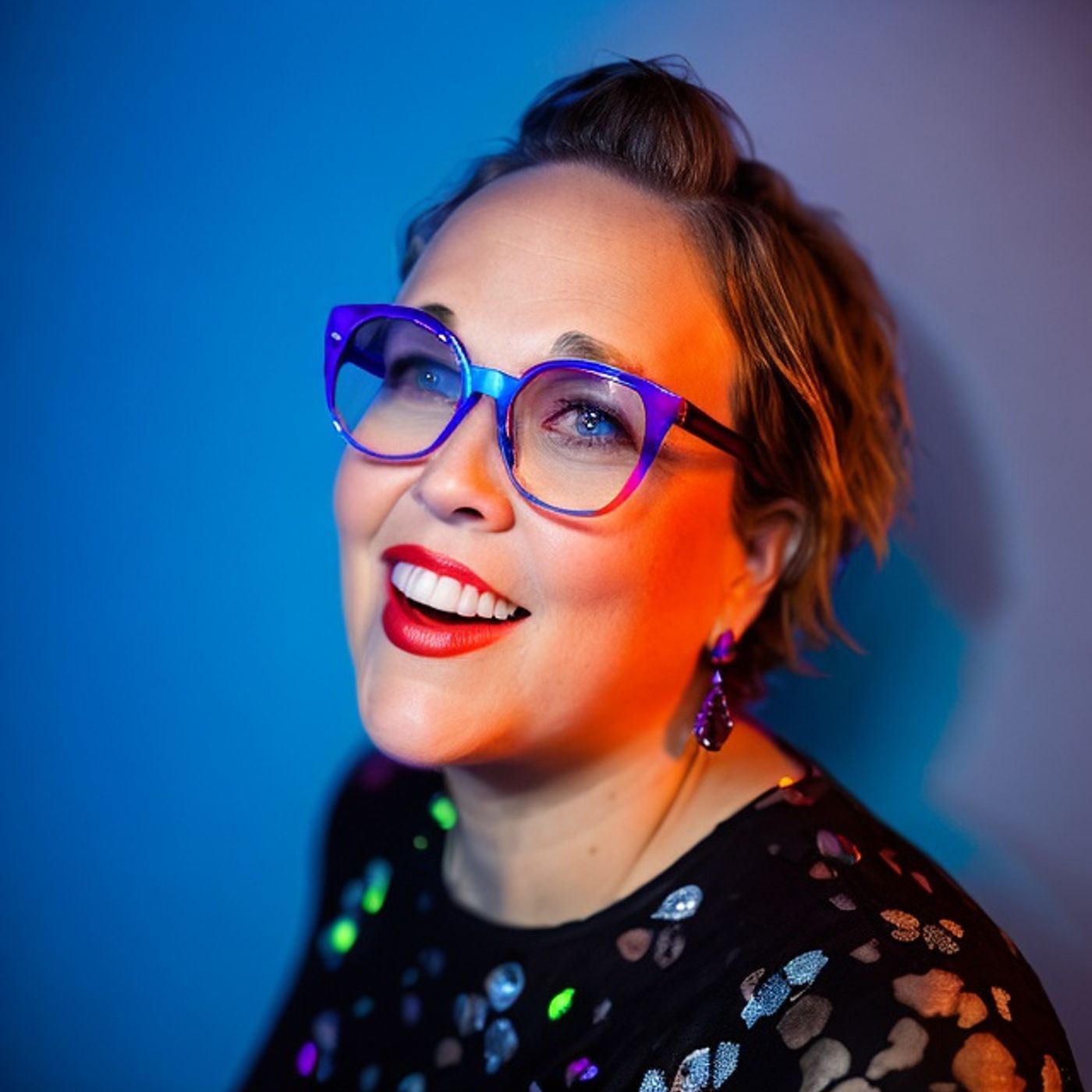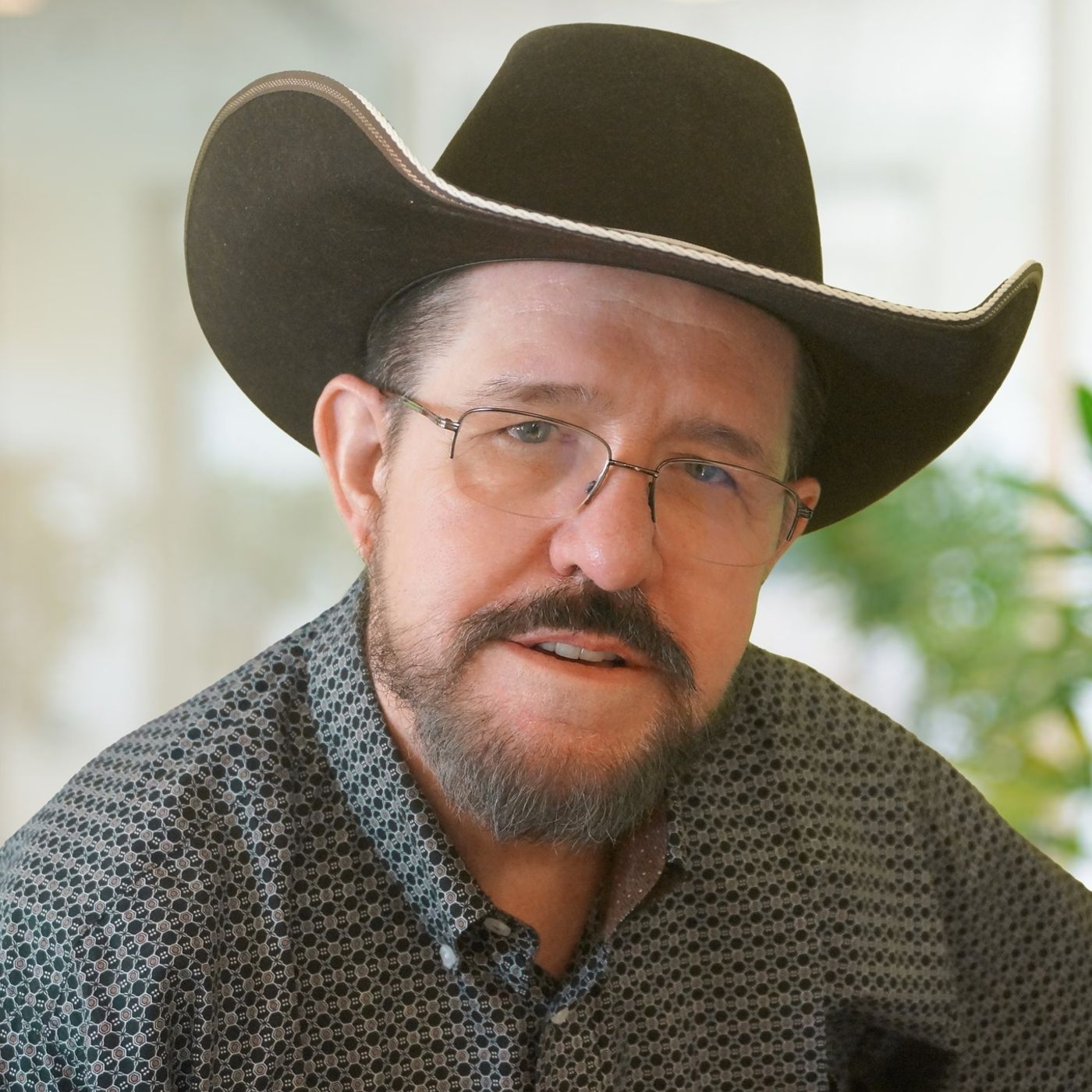Extraordinary People 10. The Other Side of the Gun: A Conversation with Susan Snow
As your host, I invite you on a journey of resilience and forgiveness, as we delve into a heartfelt conversation with the remarkable Susan Snow. She shares her poignant narrative of healing following the tragic murder of her father, a distinguished...
As your host, I invite you on a journey of resilience and forgiveness, as we delve into a heartfelt conversation with the remarkable Susan Snow. She shares her poignant narrative of healing following the tragic murder of her father, a distinguished LAPD detective. Her story is one of strength and self-discovery, anchored by her book, The Other Side of the Gun, and the constant support of her high-school sweetheart turned spouse of 38 years. As we explore her story, you'll find yourself captivated by her tenacity, drawing strength from her journey to understanding.
Our conversation takes us through the challenging therapy sessions Susan experienced following her father's demise. There's honesty in her voice as she recounts feeling misunderstood by her therapist and finding solace in connecting with fellow patients. It's an in-depth look at her internal struggles and the significant role her faith played in finding peace. We delve into the complexities of her father's murder case, her process of forgiving her father’s killer and the healing power of penning down her thoughts in a book.
Susan reflects on turning 50, a milestone that came with profound realizations. She emphasizes the importance of finding the right approach to confront trauma and grief, sharing insights that are both touching and enlightening. There's a moment of contemplation as she speaks on her hypothetical interaction with Voltaire Williams, and words of wisdom she hopes her readers and fans will carry along from her story. This conversation is a testament to Susan's resilience and her journey to understanding and healing after a life-altering event.
(0:00:00) - The Other Side of the Gun
(0:03:28) - Marriage, Loss, and Lessons Learned
(0:19:22) - Therapy and Healing From Trauma
(0:33:32) - The Power of Forgiveness and Healing
(0:38:11) - The Power of Turning 50
CLICK HERE for the Blog Post for the Episode
Susan Snow is a Realtor, Coach, Speaker, and Author. Susan is the daughter of slain Los Angeles Police Department Detective Thomas C Williams, who was killed in the line of duty October 31, 1985 when she was 17 years old.
The high-profile murder put her family in a spotlight no one asks for, traumatizing Susan and her family. After years of working through this trauma, sometimes more successful than others, Susan strives to help others.
Susan's book, "The Other Side of the Gun" tells her story from anguish and upheaval to peace and understanding.
FB page is http://facebook.com/susansnowspeaks
website is susansnowspeaks.com
Insta is susan_snow1
Get Your Copy of The other side of the gun Here a.co/d/cQ3S2uu
SIGN THE DEEP DARK SECRETS PETITION HERE
VISIT THE SHOWS SPONSOR’S
KATScreations614 use code TRUECRIME10 for 10% Discoount
<a...
00:00
When you become a police officer, you take an oath to protect and serve. But what happens when you learn that your father was brutally gunned down one Halloween day for doing just that? Do we truly know what it's like to be on the other side of the gun? Join me as I talk to author and extraordinary person, Susan Snow.
00:28
on this episode of True Crime and Author. Welcome to True Crime and Author's podcast, where we bring two passions together. The show that gives new meaning to the old adage, truth is stranger than fiction. Here's your host, David McClam. What's going on, everybody? Welcome to the episode of True Crime and Author's. Of course, I'm your man.
00:56
David McClam. Hey, if you guys haven't already, make sure you follow us on all of our social media. One link to a link tree gets you every link you need to have for the show. All right, so today is Extraordinary People Day. And boy, do I have an extraordinary person for you. Let me introduce to you who our guest is. She is a realtor, coach, speaker, and author.
01:22
She is the daughter of slain Los Angeles Police Department detective Thomas C. Williams, who was killed in the line of duty October 31st of 1985 when she was just 17 years old. The high-profile murder put her family in a spotlight no one asked for, traumatizing her and her family. And after years of working through this trauma, sometimes more successful than others, she strives to help others. Her book?
01:49
The Other Side of the Gun tells her story from anguish and upheaval to peace and understanding. She is the author of The Other Side of the Gun, an extraordinary person, Susan Snow. Susan, welcome to the podcast today. Thank you for having me. I appreciate it. Well, thank you for coming on the show. You're here, we're gonna discuss your father's murder. But the first thing I'd like to ask is, is there anything about Susan that
02:19
we don't know from your introduction. Oh my gosh. Well, I am a mother of three boys and they vary in age. They're all adult men. Let's just put it that way. My youngest just graduated from high school, so he's 18 and my other ones are older.
02:48
Well, if you're trying to hide your age, you look very well. I would have never thought you had older boys. So other than reading your book, I knew that you're that age, Brackey, but you don't look it. Well, thank you. I appreciate that. Yeah. I've been with my husband. Uh, we're going on 38 years married. 31 years. Yeah. It's, it's been an amazing journey. And I do want to point out, since you brought up your marriage for all of those people that says it does not happen.
03:18
From what I understand, your husband was your high school sweetheart. He was with you through the whole entire ordeal we're going to talk about. And you guys are still going strong today. So what is your secret for your long marriage? Our marriage has been a huge life learning experience. There was a divorce in the middle of that marriage, very short amount of time.
03:47
I feel like just there was a lot going on with us. And when we met, I was 16 and he was 19. We had only been dating three years before my dad was, or three years, three months before my dad was killed. So we were both thrust into something that neither one of us were prepared for. And the rest of the time, it was more like,
04:16
We had to learn to grow up very quickly. And if anyone has ever been in that position, you understand that it's not easy. When you're a kid and you're dealing with something so horrific, I mean, he could have took off. I think most boys would have said, this is way too much. But his character and just who he is innately.
04:45
He stuck around. But later in life, it definitely took a toll on our relationship. He thought he wanted to get out. That didn't work out for him. Because the universe had bigger plans. So my youngest is actually a child he had with another woman. I love him to death.
05:12
We went through everything that we needed to go through to get to the relationship that we're at right now. Marriage is not an easy thing. And I cringe every time I hear someone say he's gonna make me happy for the rest of my life because what happens when he doesn't? We've both grown up, we've both evolved together. And it takes two people to wanna do that. He wanted to make things right and he wanted to.
05:40
get help for himself. So that's why we are still like going strong. He's my biggest cheering section, especially when it comes to the book. He tells everyone that I wrote a book. Well, let me say I do have an awful lot of respect for your husband because at that young of an age, he did show maturity.
06:06
above a lot of people that I know that's 20, 25, 27 years of age, right? Um, I know he had the love for you because at that young age, he wanted to be with you through your most horrific times. And unfortunately, uh, I have friends, the same thing, right? They married their high school sweetheart, I guess in their mind, somehow they figured there was missing something, end up breaking up, getting back together because they figured out that the person they were already with was who they were supposed to be with.
06:34
I've been married 20 years, we were the same one for 22 years. I've been married and divorced, but the dating game just ain't the same anymore. And if you get that one woman and that one man that's down for you, they know all your dirty secrets and they deal with your dirty laundry. Yeah. I got to stick it out. Yep. Absolutely. Yep. So what I would like to do first, before we jump into what happened to your father, can you tell us something about the amazing detective, Thomas C. Williams? I've read a lot about him.
07:03
Nobody had a bad word to say about him at all. Just to hear that over a thousand officers showed up to his funeral shows you what kind of man that he was. What was he like as your father? Oh my gosh. As my dad. Um, you know, the one thing I can say about my dad is that he always had my back. Even as a young child, he fluctuated between
07:32
the cop and the dad. He was my biggest protector. He was very loving. He was a very loving father. I really felt like I could be open with him even as I got older and I had big respect for him. On the other side of that, there were some not so great things that I, for instance, I was bussed out of our area in the fifth and sixth grade.
08:01
And the school was in North Hollywood where my dad's department was. And so anytime I had a doctor's appointment or a dentist's appointment or whatever, he would come and pick me up in an undercover car. So, you know, the rumor mill started and all of a sudden, you know, I'm getting busted for drugs or something.
08:29
Right. And I'm in fifth or sixth grade, but things like that, that was kind of hard, you know, and listening to some negative talk about the fact that he was a cop and growing up with that. But other than that, you know, he, he was fun. He, you know, we spent a lot of time together. I always tell people I am my father's daughter. Totally. So yeah, I mean, people did. They, they loved my dad.
08:58
They, you know, they really respected him. And anytime I went to, you know, work with him or whatever, you know, there was always guys around telling me what a great dad I had and, and everything. So it, you know, I always knew that I was proud of that for sure. Now I'd like the orders to know, I'll let you tell it, but detective Williams was a smart guy. He actually got offered.
09:27
a very high job, but he turned it down because he wanted to be an LAPD officer. Would you tell us a little bit about the job that he turned down? And do you think that maybe if you'd have took that job, we may have a different outcome today? No, I think his heart was being a detective. I think that was all he wanted to do is to move up the ranks in the detective world. He dreamed of having a law enforcement career, a long one. You know, fate didn't.
09:56
didn't allow that. So yeah, I mean, he, he loved what I did, what he did. And I felt like he felt like he was making a difference. So October 31st, 1985 is the night that changed you and your family's life forever. Also Halloween. What were you doing before you got the news that your dad had been murdered? You know, that morning, um, my dad was actually testifying against
10:26
the guy that his case he had. So that morning I had told my dad, my mom had already left for work. I had told my dad I wanted to go to a Halloween party with my boyfriend and friends, but it was a school night. And so as dads do, he put the kibosh on going to a party on a school night.
10:57
And did I mention he's a little strict? He was a little strict. And so we kind of argued that morning, but at the same token, like he was really nervous about what he was wearing that day, which is not like him. He was a little wee bit colorblind with browns and blues. So he asked me to help him. And of course, in my teenage mind, I thought, oh, I helped dad get.
11:26
dressed today and maybe he'll change his mind on the party. But he was still pretty animate when he drove me to school. So it was just like a typical day and teenage angst and wanting to go to that party. And so I had planned in my head exactly what I was going to do the minute I got out of school is I was going to run home really quick, have my friend drop me off.
11:57
and clean the whole house. Clean the whole house. Then when my mom comes home and my dad comes home, they'll let me go to the party. That didn't happen. I was getting ready. My mom came home and she was still in her costume from her costume party at work. And she was getting out of her costume and I was putting mine on. And that's when the phone rang. Being a teenager, I thought, well,
12:26
No one else is going to get a phone call here, just me.
12:31
So I ran to the phone and I picked it up. And there was a lady from my brother's school on the other line. And she just said that there was a drive-by shooting and that my dad was involved. And I immediately handed the phone to my mom. And I just, I didn't even know how to feel at that point. Watching my mom on the phone, I could just see her body language.
13:01
I knew it was serious. So she got off the phone and told me that we were going to the school. Now, from what I understand, your dad was there to pick up your brother from school. Uh, your dad's life ended because he was trying to save your brother's life. He pretty much told your brother to get down when the shooting started. And from what I've read, this was a setup. Now, Daniel Jenkins is the man that was accused of actually pulling the trigger.
13:31
believe that's who your dad was testifying against or at his trial, who set that up. How did your brother cope with that? He was very young, I think he was five or six at the time. How did he cope with that and how did that affect him now that he's grown? My brother was six. He, you know, at the time, I don't think, you know, it took him a while, I think, to kind of figure out what happened, even though he witnessed it.
14:01
Honestly, I was so caught up in my own grief that I didn't spend a lot of time with my brother. Even that night, you know, after witnessing his body and the aftermath, my mom sent me to a neighbor's and didn't keep me with her. I had to kind of figure things out.
14:30
myself or try to navigate the grief or the shock on my own. And there was so much chaos afterwards, just a ton of chaos that they didn't catch them right away. So we had police officers all over the front of our house, the back of our house, like 20 Metro officers and helicopters and the whole thing. And it was just
15:00
world that I was not ready for. In my mom, you know, she was handling all of her shock and her grief. And since my brother was six, you know, she was taking care of him, you know. So for me, I just, at that point, was just trying to wrap my head about what happened. We all deal with PTSD.
15:28
people deal with grief in different ways. He chose a life of self-sabotage type behavior. He's doing great now. I'm so proud of him. I call him my Hercules. He's a very big guy. Very big guy. But yeah, I mean, so he just chose a different route. I can't imagine
15:59
what he went through. You know, I know what I went through, but I can't imagine what he went through. He really, uh, struggled with, you know, the survivor's guilt. That's a lot for a six year old to take in, especially, I'm sure he had a normal day at school. No one's anticipating this. Um, you know, one second he's with his dad, the next second, you know, he's holding his dad and he's already gone.
16:29
I think it's important for the audience to know that this was indeed a setup. Uh, six men was involved in this. It was set up by Daniel Jenkins because of the fact that he was mad, that your dad testified against him. At one point, from what I've read, they even, he even didn't care about you guys. He was like, we're just kill the wife and the kids too. We'll just take everybody. Right. And a lot of that was because, uh, I think from what I've read and all the newspaper articles,
16:57
One of the statements he made was that, well, we need to take him out because he knows who we are and he'll say something. Out of the other person that we were talking about, which is Voltaire Alphonse Williams, he supposedly got a conscience, said he couldn't do it because of the fact that your dad was coming with your brother. He got what I consider to be one of the lighter sentences. Now Daniel Jenkins ended up getting life in jail. Before we get into that.
17:24
The fear that came across you guys at that point in time, you guys have all of these officers in your backyard for your protection, because nobody knows where this guy is or he's coming for you. Can you walk us through a little bit of that and how did you end up coping with that before they caught him? Initially, we didn't know that we were in danger. They were doing that as a precaution. I definitely, it just, it felt so surreal. I mean,
17:55
It was totally surreal. It was like people just took over my house and there were people there that I had no idea who they were. You know, my friends would come and visit me. Even my boyfriend, my husband, he would come and the night shift would switch with the day shift and they would interrogate him.
18:20
He had to keep saying, I'm the boyfriend, I'm the boyfriend. And same with my friends. And so it was surreal, not just for us, but everyone around us. And dealing with it, it just, even I had bodyguards. Like if I wanted to go anywhere, which I never wanted to go anywhere for a while. But even like when I had to go.
18:48
shop for the outfit I would wear to his funeral. I had bodyguards with us, the trailing behind us, but it was just so bizarre to me. And I was in such a world of fog. I just lived in a fog for a really long time. So just seeing all the police officers all the time.
19:18
It was just odd to me. Now I do know that you went through therapy and sometimes I wonder if you have the same feeling I had because as reading this part in the book, I kind of think that you did. If you did research on me, you know, I've been through some stuff in my life. My dad was very abusive. It was me and my mom till she passed away in 2020. And I went to counseling too. My mom threw me into therapy. I had PTSD from that.
19:47
I was an angry young man. So my mom said, you need to go to therapy. The problem I found with therapy was they didn't really know how I really felt. I felt like I was talking to a man that had a PhD or whatever degree he had to say, I know how you feel, tell me your problems. And there was one session that I had where there was five of us who had been through some form of abuse. And we frankly said, forget this guy. He doesn't know anything.
20:15
that we're talking about and we turned our chairs and we started talking to each other because we felt like we were the only ones in the room that really knew how we felt. Did you ever feel like that while you was going through therapy? Oh my gosh. Well, here's the thing. At 17, you don't know what kind of questions to ask or you don't know how to be really transparent about what's going on inside your head.
20:42
So I was a mess, you know, I just longed to be with my dad. I had suicidal ideation. I had panic attacks. You know, a little bit of the panic attacks were from the fact that, you know, these officers were there for an entire week and I just wanted to get my life somewhat to a normalcy and I couldn't do it. And so it was, you know, I would have panic attacks and I...
21:11
had suicidal ideation and I, you know, and, you know, my mom was so caught up in all the other things that were going on with her that she didn't check in with me either, unfortunately. So LAPD actually paid for us to go to therapy about a, I would say it was about a month after my dad was killed and
21:41
I just went in there, I knew nothing about therapy. I knew nothing and met this guy and each time I would go and I'd talk to him, all we would talk about is my boyfriend, my mother and I's relationship, and my brother and I's relationship and school. And that's it. He never asked me specific questions. He never...
22:10
And people freak out when I tell them this, but he never asked me how that night affected me. Not once. So for an entire year, I saw this man. And once a week, I think it was. And it was individual therapy, just talk therapy. But at the end of the year, he looked at me and said, you're a well-rounded kid. You're a good kid.
22:39
you're strong, you're going to be fine for the rest of your life. I don't need to see you anymore." And I thought, wait, I'm a mess. You haven't fixed anything. I'm a mess. I don't understand. So I had adults around me that were just disappointing. And he was.
23:09
He was like, when I first went into therapy, I thought, okay, well, we'll try this and see. Somebody's got to help me with all of these fleeting thoughts in my head and living in a fog and all the things that I was going through at the time. But he didn't. I was told that I was fine. So I told myself, okay, I'm just nuts.
23:38
I'm just crazy and I'm, I, you know, there's nothing, nobody can help me. I'm just, I'm just crazy. So that's, I mean, that's, that's the badge I wore. You know, I was just like, well, I'm broken, I'm crazy. And that's that. I'll just keep moving on and trying to figure things out. You see, that's the problem, I think, with therapy back in the eighties.
24:08
Because when I went to therapy, they wanted to throw drugs at it, right? It's like, oh yeah, we're just gonna throw it. At the time it was lithium, back in the middle 80s. And if you know anything about that drug, it's supposed to make you so lethargic that you forget what's going on around you. So I'm always sleepy, fall asleep in class. And when I was finally 15, I was with my mom, I'm like, I don't need this anymore. I said, I got you, I got God, that's it. I said, this guy isn't even helping me.
24:32
because he doesn't really know how I feel. He doesn't know if I'm gonna go jump off a bridge tomorrow because he's programmed by what he learned in the book to tell me how I felt. In reading your book, I felt that same thing when you said you had suicidal thoughts, you kind of kept those to yourself. I'm like, yeah, because she didn't feel like she had anybody that she could talk to and say these things that would actually understand and give her some help. So I don't want you to know I felt you through all of that. Oh, that's good.
25:01
I'm glad. I mean, I'm glad it's, it's important for people to connect with my book in some sort of way, because it helps the message. Now the one thing I will say is Daniel Jenkins went to jail for life. The other guy that, I don't know if you know what the name of the other guy is, but all the articles I read, they try to hide him. They just say, Daniel Jenkins, Voltaire Williams, and the other guy. Um, he also got life. Voltaire Williams got
25:30
25 years to life. As you know, Voltaire Williams went up for parole. Your mother, which I found online, wrote a very impassioned letter to, I believe, Governor Brown at the time, pretty much saying you need to keep him where he is at. We know that didn't happen. Do you feel like, or do you know if your mom felt like, that the governor listened to her? So there is a difference in...
25:59
my mom and I is opinion about things. She still has a lot of anger, you know, and she's never let it go. And for me, you know, every time Voltaire came up for parole, I would write a letter but in a little bit of hesitation because
26:21
I had already done the work to find forgiveness for these men. I wanted to move on with my life. I wanted to keep healing and moving forward. And so what was happening is every three years he would come up for parole and I would be making progress and then it would come up and then it would drag me back five steps forward, 20 steps backwards. Yeah, that was...
26:49
the feeling. And so the final hearing, I just told myself that I needed to live with whatever was going to happen because I had no control over it. And she had no control over it either. We have our, you know, we had our thoughts, we had our opinions, we had, you know, how we felt about it. But for me, I wanted to move on with my life.
27:18
If paroling him was something that needed to happen, and I had no control over it, then all I prayed was that he would go out into society and learn from his mistakes and not make the same decisions that would land him hurting another family.
27:44
And my mom still had a lot of anger around it. And I tried to talk to her a little bit about it at the end, just telling her, you know, at some point we got to let go. You know, like I said, you know, we, we have very, we have very, you know, different opinions about the situation. Now I do know that he was the governor and I guess he could have hit a magic switch. I did find a couple of articles or a couple of quotes from Brown that he did not agree with Voltaire being
28:14
Uh, parole. Matter of fact, he went up for parole once and got denied. And then right after that, they're going to parole. As you know, the parole board was kind of funky that day too, because two people decided for him to get parole versus the whole panel. That's usually what four or five people. I personally feel that he should have been locked up for life. I get it. He didn't pull the trigger, but he was a part of planning that he was going to pull the trigger up until he had a conscious with your brother. I do understand.
28:42
You know, the anger your mom has, you know, she probably for all these years, she was robbed, you know, you took her husband. This guy should be locked up with the rest of his life. They all should have got the same sentence. I think now if this happened in today's terms, he would be in prison for life. Uh, but now he's out, he's a free man. He's paroled. What is now your overall feeling? I know you said you found forgiveness, but now that you know, he's walking the earth again, what's your overall feeling about
29:11
Not that I want to promote anything, but he wrote a book. It's not a good one. I read it. What I wanted to read was his remorse, was his feeling of remorse, was his accountability for his part, and it wasn't in there. I feel
29:40
there is no redemption for him because he hasn't taken responsibility for his part. He's blamed it on Daniel Jenkins, the flash, the cash, the women. He was a young kid that he was taken by Daniel Jenkins and he idolized him. And because he idolized him and he wanted all the things that
30:10
Daniel Jenkins had is why he made the decision to help him in the way that he did. And he just, you know, he doesn't take any responsibility for it. And that's, that was the unfortunate part for me because on the other end of that, I'm not forgetting what he did by any means, but the forgiveness was more for me. I didn't want to live with hatred in my heart.
30:40
because that steals your soul. It steals your life. And I wanted a fruitful one. So I made sure that when I was reading his book, I wanted to know for myself what he was feeling. And it kind of validated what I was thinking when he was
31:06
Paroled because I kept saying, okay, well, it's gonna happen, but I feel like he played them. He manipulated them, he told them what they wanted to hear and that way he would be paroled. And so, you know, that's unfortunate, but he thinks he got redemption, but he didn't. You know, it's funny you bringing that up because I was gonna ask you.
31:32
how you felt about his book. Doing my research, I did come across the Emancipation of Voltaire Williams. Now, maybe I'm dumb because I wanted to see the same thing you did. And so it was written by a guy named Ira Tillman. And when I discovered the book, I'm like, okay, there's a book about him. I said, maybe in this book, he's gonna say, he's sorry and what actually happened and why he backed out.
32:00
Until I started reading the little synopsis they put in the book. And then when I got to the point of it says, sitting in his uncle's living room in Oakland, Voltaire Williams sat in silence, but his blood pressure was going through the roof. I can't believe this was the first reaction he had to the news. That bastard did it. Right there, I stopped because I'm like, okay, so now what he's trying to say is he didn't do anything. Just from that line along, I'm like, so he's going to put it all on Jenkins. He's going to take no responsibility.
32:28
And it's one of those things that I struggle with being a podcast host, which they call us a digital journalist is because we're supposed to read everything to a case. But I have an issue putting money in a murderer's hands. And as you know, that book is not digital. It's not on Kindle Unlimited. Yeah. I didn't pay for it by the way.
32:51
So I was sitting here going, I'm like, I think from that, I get all I need to know. I don't want to put money in this man's hand because I feel that he's guilty. Whether he pulled that trigger or not, he was behind the orchestration of that. Oh gosh, yeah. And I wish I wasn't a robot, because I'd be like, can we bring him back? Because yeah, that, maybe I would have lied in the book, right, maybe I'd say, yeah, I really am remorseful. Even if I'm not, just to keep the cops off my back.
33:18
And this case was already twisted. I mean, one of the guys was the third cousin to OJ Simpson. All right. And then one of the, one of the person that credit card to use was, was connected to, you know, a big mogul, Quincy Jones. I'm like, this case just don't get any better. No, you know, and it's funny because when I talk to people about this case, uh, if they asked me, you know, there's so much to it that like, people just can't wrap their head around it. I know.
33:48
that the gun that was used was hid in a Temptations house. And it was like, what? I mean, there was just so, there's just so much that you can't wrap your head around this stuff. It is what it is. I mean. The one thing I will say that you said earlier, and I know it may take a while, but hopefully your mom gets this too, is you said you,
34:18
forgave him for you. And that's really what forgiveness is. Out of all the stuff my dad did to me, I had to decide to forgive him, not for him, but for myself. Because we do a lot of reading, they say that harboring hate or ill will also can lead to early death and problems with health. And even though the things he did was horrible, I'm like, I'm not forgiving him or excusing him for what he did, but I have to forgive him in order to move on.
34:48
and be a better person. And maybe one day your mom will be able to do that. And I know it's been 30 plus years going on and she's still holding onto that. But I think one day she'll have a break. With you writing your book, putting everything out there, you never know what that does, right? And that does a lot for people like myself that's been through abuse. Being you are both a part of a club in different ways we don't wanna be a part of. I lost my mom in 2020, she was my rock.
35:16
You lost her dad earlier than way earlier than you should So I totally know how you feel with that even though my mom was not brutally murdered We still suffer that loss on days like this coming up Father's Day Mother's Day Christmas How do you deal with Halloween now that your dad was killed on that day? Well, it's really interesting when my kids were little I Made it all about them all the time. So it was over the top
35:46
Halloween stuff for them, you know? And I really dove into just the experience and being with my kids on that night. As I got older, I was in a different mindset. So I was able to really look at that night differently. When I say that, I mean, I miss my dad. I will always miss my dad. It was a horrible night.
36:15
but I feel like my purpose came from his death. And some people don't understand that or don't agree with it, but it is. I feel like we're given things in life and as bad as they can be, if we can heal from it, then the next step is to teach and help others through their journey as well.
36:45
So for me, it was just, you know, I look at it as yes, it's the day I lost my dad, but at the same time, it's my purpose day. And like I said, not everybody like agrees with that or can understand, but I've done a lot of work to get where I am in order to say that. So after all this time, why did you decide to write a book?
37:13
I turned 50. It took me four and a half years to write it and publish it. When I turned 50, I thought, you know what, I have done so much work to get where I'm at. And I have so much more work to do. And I knew writing this book was going to be really difficult. And I had a lot of fear around it. Because there's parts of my truth that affect
37:43
my mom and I had a lot of fear around that and how that would affect our relationship. So what I say, I bulldozed my fear. I had to say, you know what, the purpose in this is for me to heal and through that to help others heal. And so that allowed me to kind of bulldoze through that fear and know that I'm helping others on the other side of it.
38:11
But 50, I don't know what it is about 50. And I talked to a lot of people and a lot of people say, oh my gosh, there's something about 50 that they go, okay, I'm not messing around anymore. I'm gonna do what I said I was gonna do. And I had been talking about doing this book for a really long time. And I finally just lying in the sand, that was it. I was doing it.
38:36
Well, there definitely is something about the magical number of 50 cause myself, I just turned 50 in November and I was like, this is the year I'm going to go on other people's podcasts. I'm going to tell my story. I'm going to help all these other guys out. And I'm like, I don't know why I didn't do this 25 years ago or even 10 years ago. So I don't know what it is about 50. Maybe we feel like we're at that point of life to where we lived enough of it that we can actually, you know, help somebody out. Not that our story would have been different 10 years ago.
39:06
But it's something about 50, I don't know, maybe it gives us credibility. Well, you know, and I had talked to people, including my husband, who said, I don't think you would have been able to write the book earlier than 50, because you had to be in a place, psychologically, mentally, I had to be in a place where I was able to and strong enough to keep moving forward and writing.
39:35
And I agree. I totally agree. I think you have to be in a place where you are in mentally in order to help others. Here's a question. I don't know if you've ever been asked, but because he is still alive, I'm curious. If Voltaire was to reach out to you today and try to say that he was sorry, what would you say to him? Oh, you know, I think about that all the time, actually.
40:05
Um, if I had a chance to have a conversation with Voltaire Williams, now I'm a coach, so it could be scary for him.
40:16
Because he may find himself saying things that he wasn't expecting to say. You know, I think the shoe would be on the other foot, actually. I think I would be telling him that I have forgiven him.
40:36
And I would tell him exactly why, because I am not giving you any power over my life, and I want you to know that. And so, you know, whatever happens or stem from that conversation, okay. I've had hard conversations with people in my life, and I know how I feel, and everybody has a different perception, and you know, how he feels.
41:05
is how he feels. So for me, I would just tell him exactly what I would want to say, which is, I didn't give you or Daniel Jenkins or the other guy that power over me ever and never will. So I, you know, if we had that conversation, if he did say,
41:35
he was sorry, I would accept it. What do you want people to take away from your story and from the other side of the gun? I think it's important for, and I actually talk to my kids about this all the time, when I say about bulldozing your fear, because fear is everything, right? It holds you back from everything in your life. So on the other side of fear is purpose.
42:05
So if you have a purpose on the other side of fear, then you can find ways within yourself to get through the fear in order to get to your purpose. You can do it. If I can do it, other people can do it. Obviously, if you're working through trauma and things like that, I'm not a doctor, I'm not gonna pretend to be one, seek whatever modality works for you.
42:32
You know, I did the EMDR thing. I did a lot of cognitive therapies, not just talk therapy. Journaling is amazing. Like, it is amazing. Affirmations in the morning, meditation, all the things that you can do, but there's no one size fits all for everybody. I think that's a really important message too, is because there isn't a one size fits all. Everybody's trauma is different.
43:02
Everybody's grief is different. So you have to find what's working for you, what's gonna help you individually. You know, if you do the work, boy, the freedom from your pain on the, is, it's indescribable. And it's allowed me to write this book and continue because...
43:28
Geez, the whole process of writing a book in itself is a lot. It's a lot of diving, a lot of diving, especially when you're doing a memoir. So, you know, you have to allow yourself grace and know that you're gonna have some bad days and be able to feel the different emotions that you're feeling and just knowing that you're gonna come out of that.
43:58
that you're going through that stuff because you have to. It sucks. It's not easy, but it's worth it in order to grow into the person that you wanna be. Is there anything in closing that you'd like to say to your readers or fans out there that could be listening today? Oh my goodness. Well, I wrote this book out of love.
44:24
You know, I feel like my dad was definitely a catalyst for this book. I think he wanted me to write this book, the other side of the gun, not an easy read, but it's an important read. If somebody can grasp something out of my book, then I've done my job. Well, Susan, I thank you for joining me on the show today. I have read your book. It is an awesome book. It is not an easy read, but it's definitely one you need to read. I think it does help.
44:54
and bring healing to those of us that's been through some type of dramatic situation. I say this to another officer who was an undercover officer for many years, and suffers PTSD. I says the honesty that you have in your book is what leads to healing. And that's the same with yours. So I think that you are a very courageous young woman and for telling your story. And I know that your father's looking down on you, and he's very proud of you. So I thank you for coming on the show.
45:23
Thank you so much for having me. I really appreciate the time and I have totally enjoyed our conversation. Well, if you ever want to come back for any reason, you know how to get a hold of me, feel free to reach out and we can make that happen. Sounds great.
45:41
Alright guys, so that was the incredible Susan Snow. You can pick up her book The Other Side of the Gun on Amazon and on Kindle Unlimited. If you have Kindle Unlimited, you have no reason not to read it because it's free to you under your subscription. I will remind you, she gets no credit or no money for her book and her efforts if you do not turn the pages. Downloading it is not good enough.
46:06
You can find out everything you need to know about Susan on my website underneath her episode. You have all of the stuff to get a hold of her and another link to lead you to her book as well. So we thank you guys for tuning in today. We know you have many choices in True Crime Podcast. I'm grateful that you have chosen to be here with me. Hope you guys be safe, be good to each other and always remember, always stay humble.
46:34
An act of kindness can make someone's day. A little love and compassion goes a long way. And this is the podcast where two passions becomes one. I'll catch you guys in the next one. Thank you for listening to true crime and authors. Don't forget to rate, comment, and subscribe. Join us on social media, on Facebook at true crime and authors, on Twitter at authors true on YouTube and Tik TOK.
47:02
at True Crime and Authors and email at truecrimeandauthors at gmail.com. Cover art and logo designed by Dazzling underscore Ray from Fiverr. Sound mixing and editing by David McClam. Intro script by Sophie Wilde from Fiverr. And I'm the voice guy, your imaging guy from Fiverr. See you next time on True Crime and Authors.






